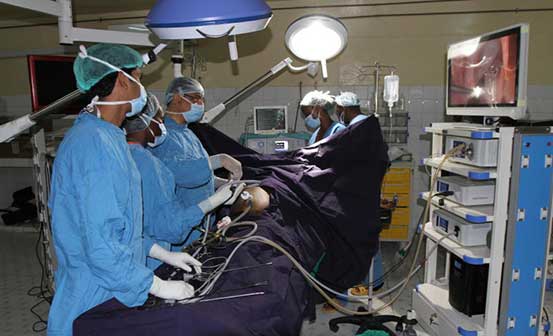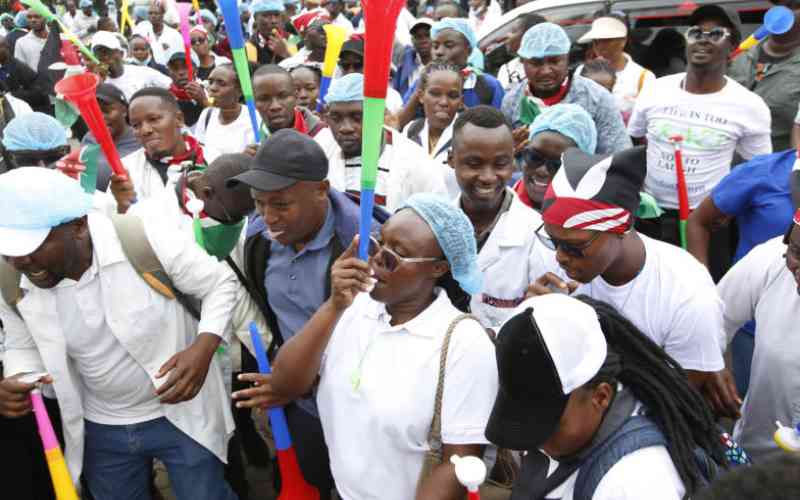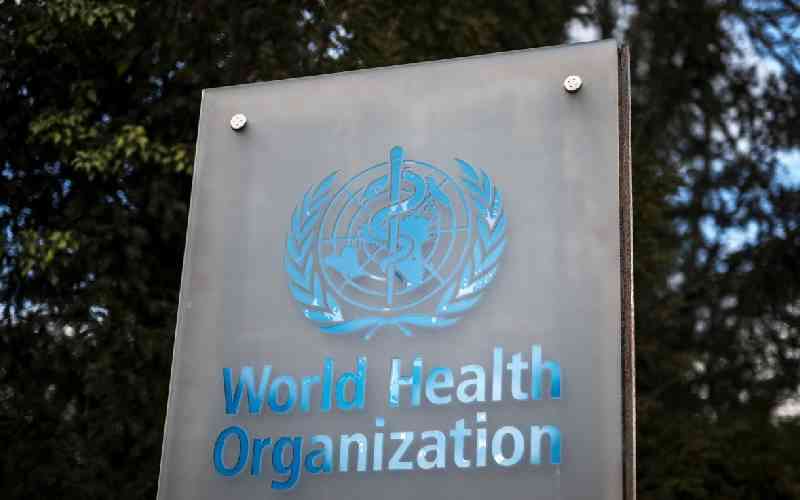
NAIROBI: A new medical cover by a State agency for terminal diseases is expected to reduce referrals to other countries.
This comes amid revelations that Kenyans spend at least Sh10 billion every year to seek treatment abroad, mostly in India, for cancer and other non-communicable diseases.
Many Kenyans are driven to India due to perceptions of lower costs for cancer treatment and a wide array of qualified specialists as well as aggressive marketing by Indian hospitals in the country.
But with the entry of National Health Insurance Fund (NHIF) to finance diagnosis and treatment locally, more Kenyans are expected to reconsider their options.
Under the new NHIF package, patients in need of chemotherapy will get a cover of Sh25,000 per session while those getting radiotherapy treatment will have a cover of Sh18,000 per session.
In addition, Kenyans needing Computer Topography (CT) scans will have a cover of Sh8,000 from NHIF while for Magnetic Resonance Imaging (MRI) they will get Sh15,000.
Monthly clinic check-up for patients with cancer and other non-communicable diseases will get a cover of Sh5,000.
The services are available in the 1,400 health facilities that are working with NHIF across the country, and whose capacity to offer the services have been accredited.
NHIF Chair Mohamud Ali said the new package for cancer will lessen the burden for Kenyans who were often forced to raise funds to seek treatment abroad, mostly in India.
"Now that we cater for cancer and we have the facilities that can provide that service across the country, more cancer patients will seek cancer treatment locally instead of going abroad," he said yesterday.
He said the new package for cancer and other non-communicable diseases are expected to go into effect as soon as Health Cabinet Secretary Cleopa Mailu approves it and the Attorney General gazettes it.
According to the Ministry of Health, at least 40,000 Kenyans are diagnosed with cancer in the country.
Dr Mailu said yesterday that diagnosis and treatment of cancer would be enhanced locally.
He said that currently, county hospitals across the country have key equipment for cancer diagnosis including 21 MRIs and 11 mammography equipment.
He also indicated that the ministry is in the process of establishing three regional cancer centres to complement the existing ones at Kenyatta National Hospital and Moi Teaching and Referral Hospital which are the only public facilities offering cancer treatment.
"This will be done through the public-private partnership model that is meant to ensure that Kenyans access cancer treatment and care locally instead of going abroad," he said.
Currently, public facilities are straining under the burden of cancer with patients having to wait at least two years before they can access treatment. This has forced many Kenyans to seek treatment abroad, where costs are believed to be lower than those offered by private facilities in Kenya.
Dr Mailu said KNH has installed a new radiotherapy machine known as a linear accelerator that can cater for more patients.
He added that MTRH has completed the construction of Chronic Care Centre to house cancer management facilities.
Dr Joseph Kibachio, head of the Division of Non-Communicable Diseases in the Health Ministry, said most families lack the financial resources to manage cancer and hailed NHIF for introducing a cover that would cater for people with chronic diseases.
Lawrence Kibare, NHIF marketing and communication manager, was however quick to clarify that the cover for cancer would only apply to those who go for annual health check-ups.
Kisumu Senator Anyang' Nyong'o, who is a cancer survivor and chair of the Africa Cancer Foundation, said the burden of managing cancer is heavy on public hospitals yet private hospitals that are fully equipped use only 30 per cent of what they have.
 The Standard Group Plc is a multi-media organization with investments in media
platforms spanning newspaper print
operations, television, radio broadcasting, digital and online services. The
Standard Group is recognized as a
leading multi-media house in Kenya with a key influence in matters of national
and international interest.
The Standard Group Plc is a multi-media organization with investments in media
platforms spanning newspaper print
operations, television, radio broadcasting, digital and online services. The
Standard Group is recognized as a
leading multi-media house in Kenya with a key influence in matters of national
and international interest.











